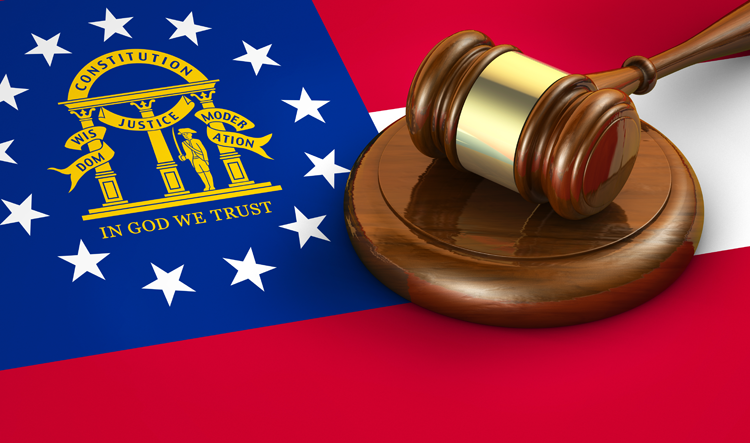Top Georgia court tosses ethics case against lawyer who alleges racial bias in discipline

The Georgia Supreme Court has ruled unanimously for a Black lawyer who was accused of violating ethics rules by using information revealed by a potential client in a consultation. Image from Shutterstock.
The Georgia Supreme Court has tossed a disciplinary case against a Black lawyer who alleges in a separate lawsuit that the disciplinary process is tainted by racial bias.
The state supreme court ruled unanimously Oct. 24 for Marsha Williams Mignott, who was accused of violating ethics rules by using information revealed by a potential client in a consultation. The state supreme court ruled that Mignott can’t be disciplined because the ethics rules at issue apply only to actual clients.
Law360 has coverage.
A special master had recommended that Mignott be suspended for two years. A disciplinary review board lowered the recommended suspension to one year.
Mignott was charged under ethics rules that provide:
• A lawyer “shall not use information gained in the professional relationship with a client to the disadvantage of the client unless the client gives informed consent.”
• A lawyer “who has formerly represented a client in a matter … shall not thereafter: reveal information relating to the representation,” with some exceptions.
Mignott was not charged under a different ethics rule on maintaining client confidences. A comment to that rule says information gained in a professional relationship includes information gained from a prospective client.
The Georgia Supreme Court said the comment to the uncharged rule cannot change the text of the rule, which references only confidentiality obligations to “a client.”
“And given that a comment to a rule cannot change that rule’s text, it follows that a comment to one rule certainly cannot change the text of a different rule even if the comment references other rules,” the Georgia Supreme Court said.
In any event, the state supreme court said, Mignott can’t be disciplined under the different ethics rule because she was not charged with violating it.
The Georgia Supreme Court noted that a new ethics rule in Georgia specifically governs duties to prospective clients. It doesn’t apply to Mignott, however, because it was adopted after the conduct at issue.
Mignott’s separate suit alleging racial bias is pending before U.S. District Judge Eleanor Ross of the Northern District of Georgia. The State Bar of Georgia’s motion to dismiss is pending.



